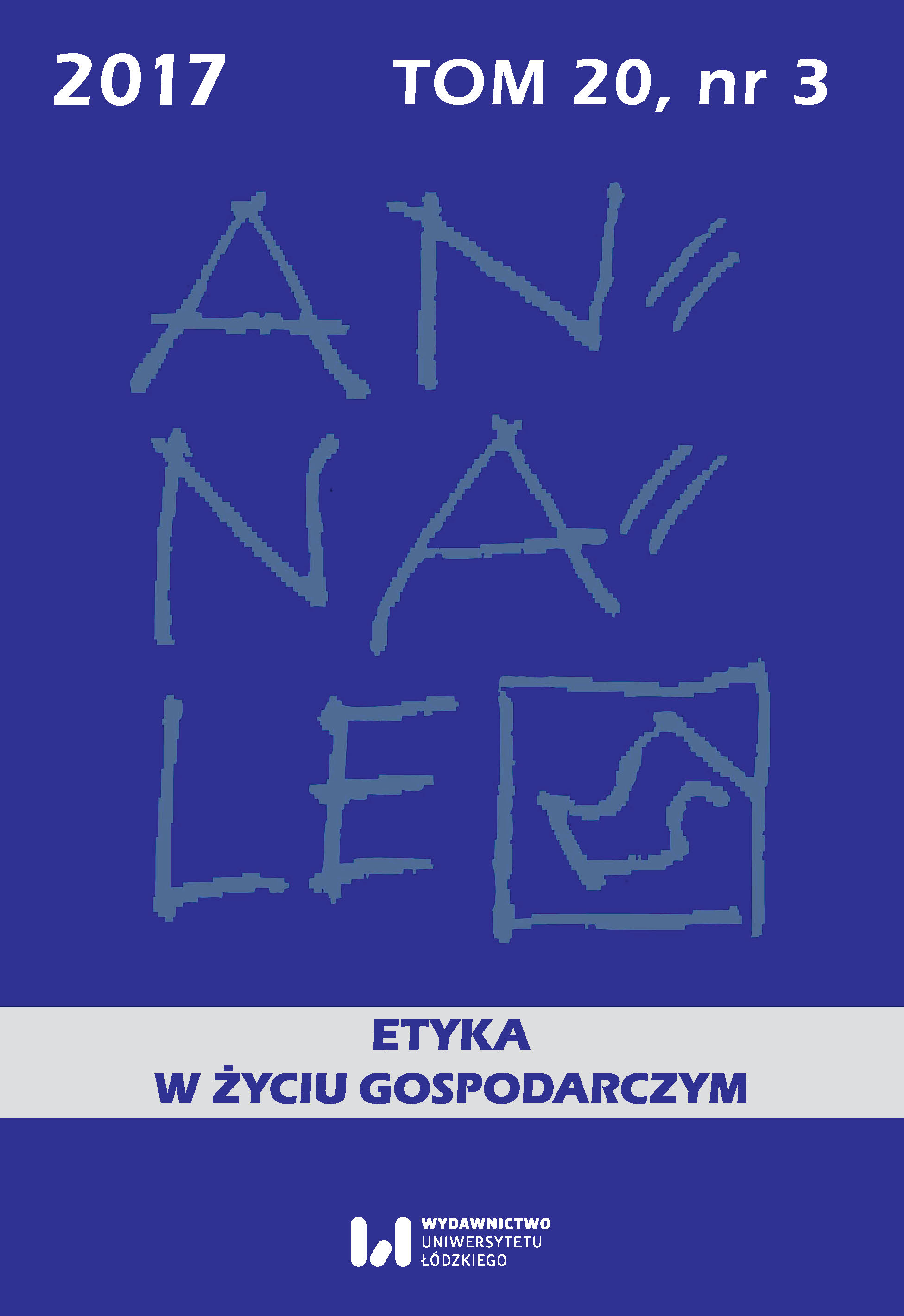The Human as Capital? A Contribution to the Critique of the Theory of Human Capital
DOI:
https://doi.org/10.18778/1899-2226.20.3.01Keywords:
capital, human capital, person, perosnalismAbstract
In modern economic theories, human qualities are treated as autonomous production factors, which are called “human capital”. However, in these theories, there is no description of the relationship between human capital and the man who is his “bearer,” nor an explanation of the process of that capital formation.
In the thesis, the author tries to justify it as follows: Human qualities, including knowledge and skills, are an integral part of a human being, that is, they are involved in every human act. It is therefore wrong to analyze their economic significance in isolation from the whole structure of human activity. Through his action, man discovers the potential in things and relationships in the form of the possibility of using them for a particular purpose. Capital is thus realized by the human potential of things that form a system for transforming the world.
In the first part, a general description of the theory of human capital will be made. In the second part, it will be criticized. In turn an attempt will be made in the third part to show the proper relationship between man and capital from the perspective of personalism.
References
Blair M.M., An Economic Perspective on the Notion of „Human Capital” [w:] The Oxford Handbook of Human Capital, red. A. Burton-Jones, J.C. Spender, Oxford University Press 2011.
Google Scholar
Blaug M., The Empirical Status of Human Capital Theory: A Slightly Jaundiced Survey, „Journal of Economic Literature” 1976, vol. 14, nr 3.
Google Scholar
Carney S., Czerwony rynek. Na tropie handlarzy organów, złodziei kości, producentów krwi i porywaczy dzieci, Wydawnictwo Czarne, Wołowiec 2014.
Google Scholar
Coase R.H., Firma, rynek i prawo, Oficyna Wolters Kluwer business, Warszawa 2013.
Google Scholar
Dobija M., Kapitał ludzki w perspektywie ekonomicznej, red. M. Dobija, Wydawnictwo Uniwersytetu Ekonomicznego w Krakowie, Kraków 2011.
Google Scholar
Domański S.R., Kapitał ludzki i wzrost gospodarczy, PWN, Warszawa 1993.
Google Scholar
Harari Y.N., Od zwierząt do bogów. Krótka historia ludzkości, Wydawnictwo Naukowe PWN, Warszawa 2014.
Google Scholar
Hayek F.A., Nadużycie rozumu, Prohibita, Warszawa 2013.
Google Scholar
Kiker B.F., Roots of the Concept of Human Capital, „Journal of Political Economy” 1966, vol. 74, nr 5.
Google Scholar
Kurek B., Hipoteza deterministycznej premii za ryzyko, Monografie: Prace Doktorskie, nr 10, Wydawnictwo Uniwersytetu Ekonomicznego w Krakowie, Kraków 2011.
Google Scholar
Metzinger T., The Ego Tunnel: The Science of the Mind and the Myth of the Self, Basic Books, New York 2009.
Google Scholar
Pinker S., Tabula rasa. Spory o naturę ludzką, GWP, Sopot 2012.
Google Scholar
Possenti V., Osoba nową zasadą, Polskie Towarzystwo Tomasza z Akwinu, Lublin 2017.
Google Scholar
Schultz T.W., Ekonomia kapitału ludzkiego, Oficyna Wolters Kluwer business, Warszawa 2014.
Google Scholar
Tittenbrun J., Kolonizacja nauki i świata przez kapitał. Teoria światów równoległych w wydaniu socjologii wiedzy, Zysk i S-ka, Poznań 2014.
Google Scholar
Tomer J.F., Intangible Capital. Its Contribution to Economic Growth Well-being and Rationality, Edward Elgar Publishing, Cheltenham, UK, Northampton, MA, USA 2008.
Google Scholar
Tomer J.F., Integrating Human Capital with Human Development. The Path to a More Productive and Humane Economy, Palgrave Macmillan, London 2016.
Google Scholar
Williamson O.E., Ekonomiczne instytucje kapitalizmu, Wydawnictwo Naukowe PWN, Warszawa 1998.
Google Scholar
Wojtyła K., Filozof i papież. Wybór tekstów, Oficyna Naukowa, Warszawa 2009.
Google Scholar









